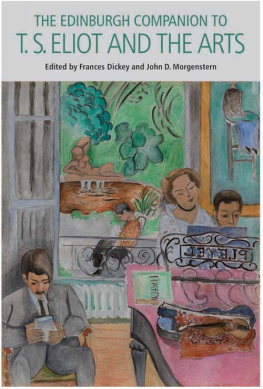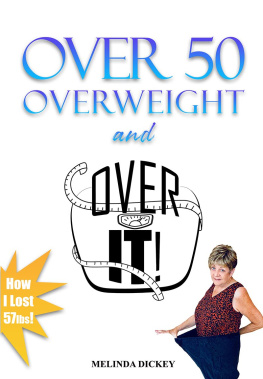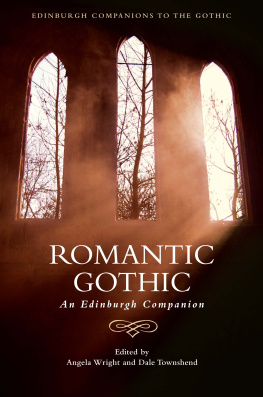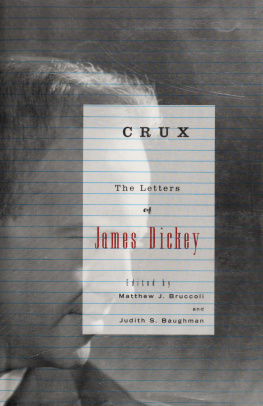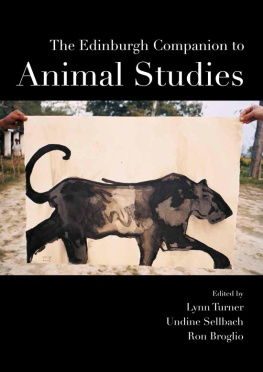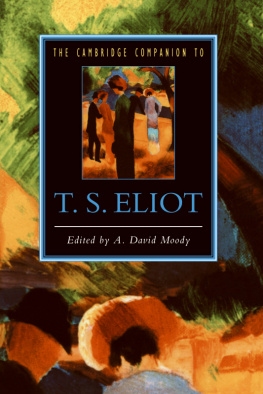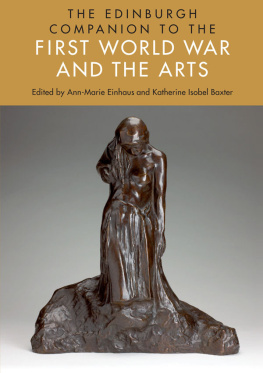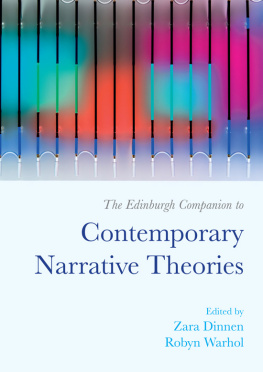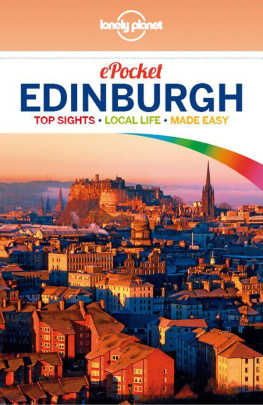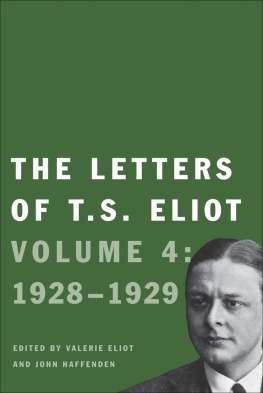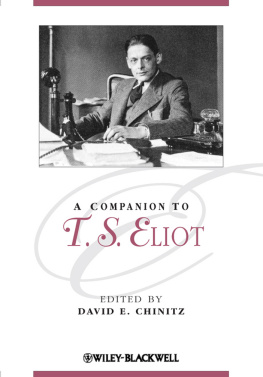Dickey Frances - The Edinburgh Companion to T. S. Eliot and the Arts
Here you can read online Dickey Frances - The Edinburgh Companion to T. S. Eliot and the Arts full text of the book (entire story) in english for free. Download pdf and epub, get meaning, cover and reviews about this ebook. publisher: Edinburgh University Press, genre: Art. Description of the work, (preface) as well as reviews are available. Best literature library LitArk.com created for fans of good reading and offers a wide selection of genres:
Romance novel
Science fiction
Adventure
Detective
Science
History
Home and family
Prose
Art
Politics
Computer
Non-fiction
Religion
Business
Children
Humor
Choose a favorite category and find really read worthwhile books. Enjoy immersion in the world of imagination, feel the emotions of the characters or learn something new for yourself, make an fascinating discovery.
- Book:The Edinburgh Companion to T. S. Eliot and the Arts
- Author:
- Publisher:Edinburgh University Press
- Genre:
- Rating:3 / 5
- Favourites:Add to favourites
- Your mark:
- 60
- 1
- 2
- 3
- 4
- 5
The Edinburgh Companion to T. S. Eliot and the Arts: summary, description and annotation
We offer to read an annotation, description, summary or preface (depends on what the author of the book "The Edinburgh Companion to T. S. Eliot and the Arts" wrote himself). If you haven't found the necessary information about the book — write in the comments, we will try to find it.
The Edinburgh Companion to T. S. Eliot and the Arts — read online for free the complete book (whole text) full work
Below is the text of the book, divided by pages. System saving the place of the last page read, allows you to conveniently read the book "The Edinburgh Companion to T. S. Eliot and the Arts" online for free, without having to search again every time where you left off. Put a bookmark, and you can go to the page where you finished reading at any time.
Font size:
Interval:
Bookmark:

The Edinburgh Companion to
T. S. Eliot and the Arts
T HE E DINBURGH
C OMPANION TO
T. S. E LIOT AND
THE A RTS
E DITED BY F RANCES D ICKEY
AND J OHN D. M ORGENSTERN
EDINBURGH
University Press
Edinburgh University Press is one of the leading university presses in the UK. We publish academic books and journals in our selected subject areas across the humanities and social sciences, combining cutting-edge scholarship with high editorial and production values to produce academic works of lasting importance. For more information visit our website: www.edinburghuniversitypress.com
editorial matter and organization Frances Dickey and John D. Morgenstern, 2016
the chapters their several authors, 2016
Edinburgh University Press Ltd
The Tun Holyrood Road, 12(2f) Jacksons Entry, Edinburgh EH8 8PJ
Typeset in 10/12 Adobe Sabon by
IDSUK (DataConnection) Ltd, and
printed and bound in Great Britain by
CPI Group (UK) Ltd, Croydon CR0 4YY
A CIP record for this book is available from the British Library
ISBN 978 1 4744 0528 7 (hardback)
ISBN 978 1 4744 0529 4 (webready PDF)
ISBN 978 1 4744 0530 0 (epub)
The right of Frances Dickey and John D. Morgenstern to be identified as the editors of this work has been asserted in accordance with the Copyright, Designs and Patents Act 1988, and the Copyright and Related Rights Regulations 2003 (SI No. 2498).
Published with the support of the Edinburgh University Scholarly Publishing Initiatives Fund.
C ONTENTS
A CKNOWLEDGMENTS
M any people have contributed to this volume beyond its authors, and we wish to thank those who have given their time and expertise: first, our editors at Edinburgh University Press, especially Jackie Jones and Adela Rauchova, who sought out, supported, and encouraged this project; James Dale, Rebecca Mackenzie and Camilla Rockwood, whose contributions throughout the production process were invaluable; members of the T. S. Eliot Society who provided valuable feedback about many of these chapters in earlier versions, including David Chinitz, Ronald Schuchard, Anthony Cuda, Timothy Materer, Michael Coyle, Nancy D. Hargrove, Anita Patterson, Jayme Stayer, Julia Daniel, and especially Vincent Sherry, for his generous reading and advice; Jim McCue for his advice; Christopher Ricks, for the inspiration of his example and encouragement; Ronald Bush for his advice; Rmi Labrusse for his expertise and assistance; Iman Javadi, whose attentive reading and editorial suggestions were invaluable; Anne Nishimura Morse, curator of Asian Art at the MFA in Boston; staff at Ellis Library and the Missouri State Historical Society at the University of Missouri for the use of their collections and help with digitizing historic photographs; the Centre for the History of the Book at the University of Edinburgh; Catherine Piganiol at the Bibliothque byzantine at the Collge de France; staff at the Isabella Stewart Gardner Museum archives; and Camille Cooper and Kathy Edwards, librarians extraordinaires at Clemson University. Finally, and most importantly, we thank our families, especially Stew, Matthew, Thomas, Charles, and Barbara, without whose support and patience the volume certainly would not have reached completion.
Illustration Credits
A BBREVIATIONS OF W ORKS
BY T. S. E LIOT
Complete Prose 1 | The Complete Prose of T. S. Eliot, Vol. 1: 19051918, ed. Jewel Spears Brooker and Ronald Schuchard (Baltimore: Johns Hopkins University Press, and London: Faber and Faber, 2014) |
Complete Prose 2 | The Complete Prose of T. S. Eliot, Vol. 2: 19191926, ed. Anthony Cuda and Ronald Schuchard (Baltimore: Johns Hopkins University Press, and London: Faber and Faber, 2014) |
Complete Prose 3 | The Complete Prose of T. S. Eliot, Vol. 3: 19271929, ed. Frances Dickey, Jennifer Formichelli, and Ronald Schuchard (Baltimore: Johns Hopkins University Press, and London: Faber and Faber 2015) |
Complete Prose 4 | The Complete Prose of T. S. Eliot, Vol. 4: 19301933, ed. Jason Harding and Ronald Schuchard (Baltimore: Johns Hopkins University Press, and London: Faber and Faber 2015) |
CPP | The Complete Poems and Plays of T. S. Eliot (London: Faber and Faber, 1969) |
IMH | Inventions of the March Hare: Poems 19091917, ed. Christopher Ricks (London: Faber and Faber, 1996) |
L1 | The Letters of T. S. Eliot, Vol. 1: 18981922, revised edition, ed. Valerie Eliot and Hugh Haughton (London: Faber and Faber, 2009) |
L2 | The Letters of T. S. Eliot, Vol. 2: 19231925, ed. Valerie Eliot and Hugh Haughton (London: Faber and Faber, 2009) |
L3 | The Letters of T. S. Eliot, Vol. 3: 19261927, ed. Valerie Eliot and John Haffenden (London: Faber and Faber, 2012) |
L4 | The Letters of T. S. Eliot, Vol. 4: 19281929, ed. Valerie Eliot and John Haffenden (London: Faber and Faber, 2013) |
L5 | The Letters of T. S. Eliot, Vol. 5: 19301931, ed. Valerie Eliot and John Haffenden (London: Faber and Faber, 2014) |
OPP | On Poetry and Poets (London: Faber and Faber, 1957) |
SE | Selected Essays, 3rd ed. (London: Faber and Faber, 1951) |
TCC | To Criticize the Critic (London: Faber and Faber, 1965) |
UPUC | The Use of Poetry and the Use of Criticism, 2nd ed. (London: Faber and Faber 1964) |
WLF | The Waste Land: A Facsimile and Transcript of the Original Drafts, ed. Valerie Eliot (London: Faber and Faber, 1971; New York: Harcourt, Brace, Jovanovich, 1971) |
P REFACE
Ronald Schuchard
T he essays in this timely collection represent a significant new turn to the arts in the work of T. S. Eliot, facilitated by the ongoing appearance of long-awaited editions of his poems, prose, letters, and plays commissioned by the late Valerie Eliot. The lifting of restrictions on these several genres now provides scholarly access to Eliots lifetime engagement with the arts in both popular and high culture, showing him to be far removed from tired allegations of cultural elitism, continuously educating himself not only in literary but in visual and performance traditions, seeking friendships in artistic circles, and vigorously defending the arts from censorship as critic and editor. The authors of these new studies in the several arts have begun to mine the wealth of previously uncollected and unpublished archives, building upon David Chinitzs T. S. Eliot and the Cultural Divide (2003) and expanding the range and depth of the Asian, Renaissance, Victorian, and modern art forms with which Eliot enriches the cultural texture of his oeuvre.
As a Harvard student, Eliot educated himself in the arts both informally as a voracious reader and concertgoer, and formally in the classroom, including Fine Arts 20b: Italian Renaissance Artists, which he took during the 190910 academic year. In this course, taught by Edward Forbes, Director of Harvards Fogg Museum, Eliot took copious notes on the paintings, frescoes, and altarpieces of Uccello, Castagno, Veneziano, Fra Filippo Lippi, Fra Angelico, Botticelli, Donatello, and Michelangelo, among others, with frequent visits to the Fogg. He continued his exploration of the arts and architecture during the 191011 academic year at the Sorbonne in Paris, which included a journey to Italy for visits to museums and cathedrals, as chronicled by Nancy D. Hargrove in
Next pageFont size:
Interval:
Bookmark:
Similar books «The Edinburgh Companion to T. S. Eliot and the Arts»
Look at similar books to The Edinburgh Companion to T. S. Eliot and the Arts. We have selected literature similar in name and meaning in the hope of providing readers with more options to find new, interesting, not yet read works.
Discussion, reviews of the book The Edinburgh Companion to T. S. Eliot and the Arts and just readers' own opinions. Leave your comments, write what you think about the work, its meaning or the main characters. Specify what exactly you liked and what you didn't like, and why you think so.

